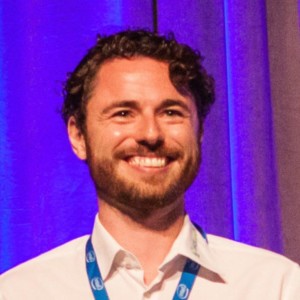The Industrial IOT: daq.io and Platforms, Technologies, & Trends
Chris Conger, Business Development Manager at Erdos Miller, recently sat down with Peter Adelhardt, CEO of daq.io to discuss emerging trends in the Industrial Internet of Things (IOT).
Listen to the entire interview here or read it below.
Chris: Good day. This is Chris Conger with Erdos Miller. Today we are here with Peter Adelhardt, the CEO of daq.io, an industrial cloud enablement platform. We are going to talk to Peter about trends in the IOT space and new technology that is emerging. Peter thanks for joining us.
Peter: Thank you, Chris, for having me.
C: Tell me a little bit about the daq.io platform and how it got started.
P: daq.io, as you correctly identified it, is an industrial cloud enabling platform. What does that mean? First of all, it is a web platform that provides remote visualization of real-time machine data and analysis of historical data. It can be used for the remote maintenance of machines and devices.
Behind daq.io, we are engineers with backgrounds in industrial automation and consulting. We saw the need for such a platform in that market. We have solved many specific monitoring applications in the past and created daq.io as a universal platform.
C: Tell me a little bit more about the challenges the platform attempts to solve.
P: If you look at, for example, the energy market today, there are many applications where you have machines and devices scattered across the country and the globe. One of the challenges is just to track those machines and provide maintenance and service.
We help our customers connect their machines to the Industrial IOT, which will enable them to make their machines smarter, provide better services and improve the quality of their products and offerings.
C: What do you mean by making machines smarter, Peter?
P: Smart machines are part of the vision for the Industrial IOT. It means that you can optimize manufacturing processes by interconnecting devices and giving devices more intelligence to make decisions on their own.
The first step for making those machines smarter is to learn about them. That means you should have predictive failure analysis, which also allows for predictive maintenance for these machines or devices. Also, you need to be able to monitor the performance and optimize the performance of these machines. That is what daq.io provides.
C: You listed several challenges that your customers typically face. What types of customers are a good fit for daq.io and can benefit from the platform?
P: Many of our customers specialize in mechanical design and engineering. They provide custom engineered machines and devices. They are experts in their fields and their domains and now they need to get their devices ready for the Industrial IOT. We are there to equip them with an off the shelf platform to get them up and running quickly.
Other customers use daq.io as a general-purpose platform. These customers already perform measurements, which could be environmental measurements, infrastructure health measurements, or testing prototypes of pretty much any commercial device in the field—for example, household appliances.
C: What differentiates the daq.io platform?
P: When we first started developing the daq.io platform we had a very strong focus on the ease of use. Our customers want to get their device online, so that was a strong focus from the start.
It is a web-only interface. We focused on very rich user-defined dashboards which customers can design themselves. We also understand the requirements in the test & measurement market and the industrial automation market.
To make sure that you are taking full advantage of our platform, including its customization features, we have identified key partners who can help you get your systems online and we are very happy that Erdos Miller is one of them.
C: I appreciate that. What made you choose to partner with Erdos Miller?
P: As I said before, we are a platform provider. We also connect to the real world, and in Erdos Miller we see a strong partner who can complement our solution by providing custom electronics and automation know-how. Erdos Miller is a perfect fit because they are experienced in implementing a full solution for their customers and they can integrate daq.io into that solution.
C: What are some of the business and technology trends that you see in the Industrial IOT market?
P: One key driver in the technology market is lower power. That is easy to understand when you think about how not only thousands, but hundreds of millions of devices will be connected in the Industrial IOT of the future.
Another driver is providing a data marketplace that all kinds of customers can benefit from. On the business side of things, the most important factor is to lower the overall cost, both for the data transmission and the data storage.
C: What are some of the key technologies that are at the forefront of these trends?
P: Currently, many technologies are being developed to solve these challenges for the IOT. Some very promising technologies are Sigfox, LoRa, Weightless, RPMA and others that make use of the license-exempt ISM bands. Of course, 5G is also on the horizon to enable the vision of Internet-connected devices everywhere.
We are always working with our partners and customers to select the best solution available to get their systems online. We want to find the most reliable and cost-effective solution for each individual application.
C: What is your vision for the daq.io platform, Peter?
P: We really want to make it a powerful hub for machine data. daq.io will be a platform to connect machines and other data sources, allow real-time analysis, but also tie into all kinds of other platforms.
While the machine data is very valuable by itself, the real innovation of the IOT and Industrial IOT will come with full integration into existing CRM and ERP systems as well as new cloud platforms. Our customers can provide better service and maintenance options, and create new ways to monetize their data in their respective fields.
C: Well Peter, we're excited about the daq.io platform and thanks for taking the time to explain your vision and how it can benefit customers.
P: Thank you, Chris.
Learn more about Erdos Miller's IoT Cloud Integration with daq.io





